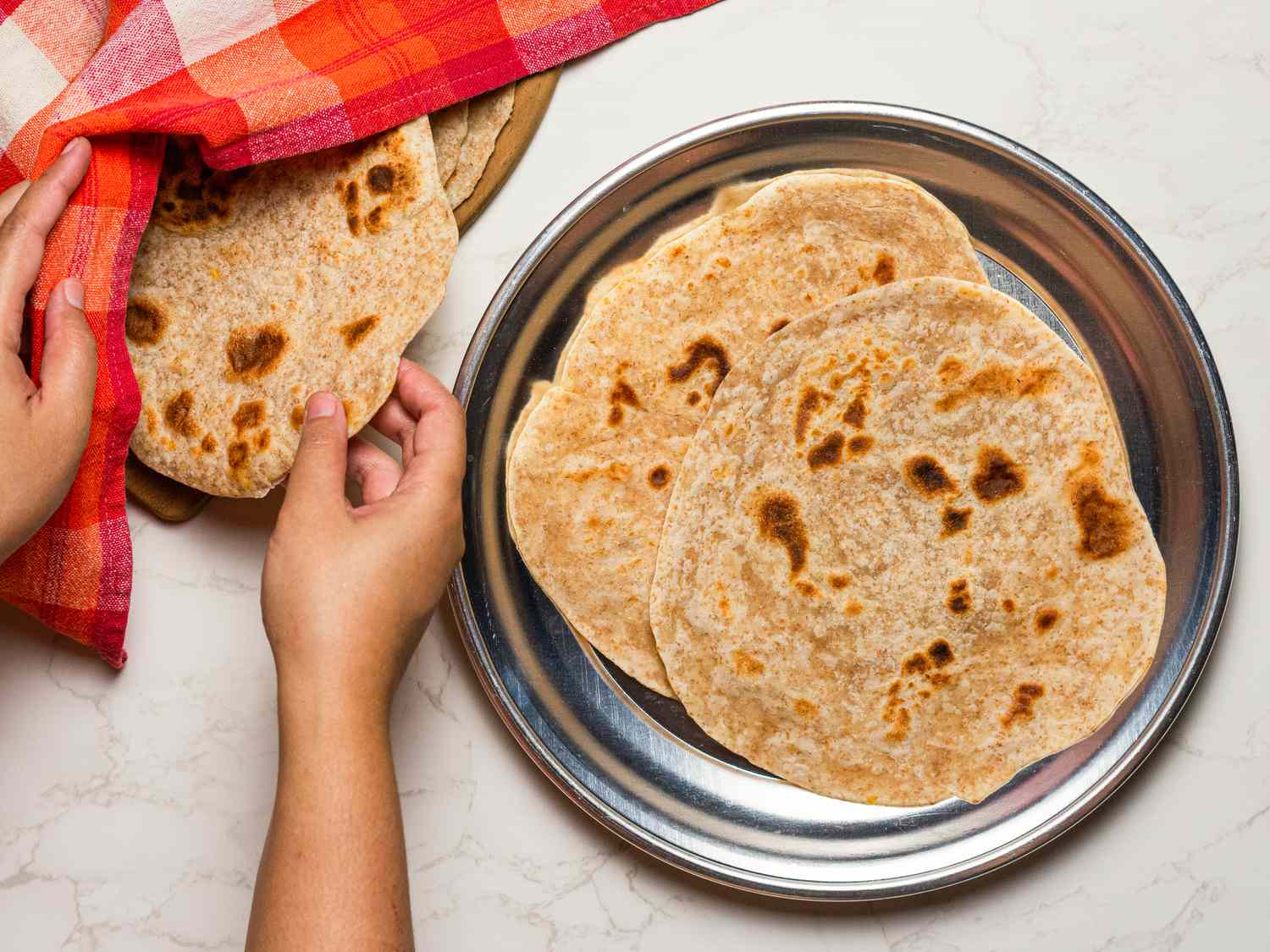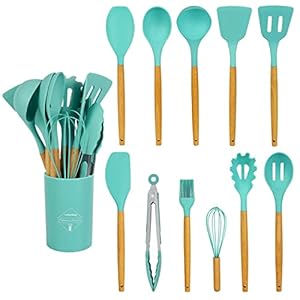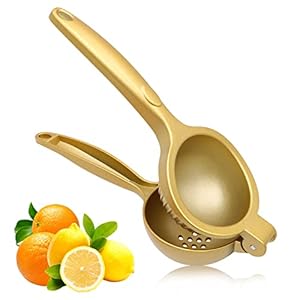
Why It Works
- The mix of all-purpose and whole-wheat flour provides the chapati a texture and taste much like what you’d get from the flour generally utilized in Kenya.
- Utilizing a minimal quantity of oil permits the chapati to retain its softness whereas cooking.
I have been honing the artwork of creating chapati—the mushy unleavened savory flatbread generally served alongside meals in a number of East African nations—since my childhood in Kenya and I’ve been lucky to select up many suggestions and methods from numerous members of the family alongside the best way. The cooking course of for chapati is comparatively easy in idea: A one-bowl dough is combined by hand, rested briefly, rolled, formed, and cooked for just some minutes on the stovetop. However I do know from expertise that it may well take a little bit of follow to nail the best method to get this unleavened savory flatbread pillowy-soft and crammed with flaky layers.
Most Kenyan households prepare dinner chapati a few occasions every week for supper. My grandmother makes the perfect chapati I’ve ever had, and after years of follow, I’ve give you a way that enables me to duplicate my grandmother’s model each time. I sometimes make it at the least as soon as a month to maintain my abilities sharp and with the information and recipe I am sharing right here, you may be taught the artwork of creating the perfect chapati too.
Severe Eats / Michelle Yip
Kenyan Chapati vs. Indian Chapati and Different Flatbreads
Regardless of sharing a reputation, Kenyan chapati and Indian chapati are usually not the identical bread. The phrase chapati does replicate the heavy affect Indian delicacies has had on Kenyan coastal cooking, stemming from the big inflow of Indian immigrants into Kenya for the reason that late nineteenth century. However it might be extra correct to explain Kenyan chapati as a thinner model of an Indian paratha, as they each characteristic comparable great flaky layers. Nonetheless, in comparison with Indian paratha, the quantity of fats utilized in Kenyan chapati is diminished to make sure that the layers are mushy and tender.
Severe Eats / Michelle Yip
The Hallmarks of Wonderful Kenyan Chapati
Kenyan chapati is thought for its delectable flaky layers, achieved by laminating the dough with a fats reminiscent of lard, butter, or oil. Whereas all three sorts of fats are generally utilized in chapati, I favor to make use of oil in mine for the impartial taste it provides to the dough. I discover this lets the earthy taste of the whole-wheat flour within the chapati be extra outstanding. Chapatis are historically served with easy stews, sautéed veggies, or stir-fries in houses, however are additionally widespread with road meals distributors who use them as wraps for a wide range of sandwiches.
This recipe provides one basic tackle Kenyan chapati, however each prepare dinner in Kenya has their very own strategies for reaching this mushy and flaky bread. Listed here are my suggestions for making chapati at residence that even my grandmother would love.
Ideas for Making the Greatest Kenyan Chapati
Select the best flour
In Kenya, a nice 100% whole-wheat flour often known as graded Atta mark 1 is the primary sort of flour that’s accessible in grocery shops, and is due to this fact the flour utilized in making chapati. Whereas such a flour can be present in Indian grocery shops, it is necessary to keep away from flour labeled as “chapati flour” instead, as this flour is normally a mix of whole-wheat flour and barley or chickpea flour, designed for making Indian chapati.
Since Atta mark 1 flour will be difficult to seek out in most U.S. markets, I favor to make use of a mix of all-purpose flour and whole-wheat flour to duplicate the finely milled whole-wheat flour bought in Kenya. By testing many batches, I landed on a ratio of three.5 components all-purpose flour to at least one half whole-wheat flour. All-purpose flour absorbs water extra readily than whole-wheat flour, which suggests extra liquid will be added to the dough whereas the dough nonetheless retains its form. The extra hydrated the dough, the extra tender the ultimate chapati might be. When i attempted making this dough with 100% whole-wheat flour and the identical quantity of liquid, the dough was moist and troublesome to laminate and form. Whereas utilizing all-purpose flour achieved the dough texture I needed, I nonetheless needed the signature earthy wheat taste in my chapati. I discovered that combining 100 grams of whole-wheat flour with 350 grams of all-purpose flour produced that signature earthy and nutty whole-wheat taste I needed. The ultimate mix of all-purpose flour and whole-wheat flour work collectively for a chapati dough that’s malleable, straightforward to form with the complicated taste I needed.
Add milk for a extra tender dough
In my household, which is of Maasai heritage, we incorporate contemporary milk along with water when making the dough, and that is mirrored on this recipe. The extra fats, sugar, and proteins from the milk scale back gluten improvement within the dough and yield a softer texture than when water alone is used within the dough. After testing, I landed on a ratio of two:3 components by quantity of water to take advantage of for a dough that produces tender chapati.
Severe Eats / Michelle Yip
Be sure the dough is correctly hydrated and pliable
Correct hydration in the course of the preliminary dough formation is crucial for profitable chapati. Beneath hydrated dough will lead to a troublesome texture. If the dough nonetheless appears shaggy and dry after the milk and water are added, go forward and knead in a single further tablespoon of water at a time till no dry flour stays.
Select the best pan
Historically, a jua kali pan, a flat skillet used particularly for chapati is used to prepare dinner the bread, permitting cooks to confidently flip the chapati utilizing their fingers with out the danger of burning their wrists. Should you don’t personal such a pan, you should utilize a big skillet; the even warmth retention of a seasoned cast-iron skillet is finest. The diameter of the cooking floor must be at the least 10 inches to accommodate the chapati. To flip with out burning your self, use a spatula to elevate the chapati and use your hand to regular the chapati as you flip it.
Severe Eats / Michelle Yip
Take it straightforward on the oil
One invaluable tip I realized from my grandmother is to make use of little or no oil within the pan when cooking the chapati. The skillet must be coated in only a skinny movie of oil when cooking chapati to stop the dough from sticking to the skillet. An excessive amount of oil within the skillet will trigger the sides of the chapati to fry and switch crispy, which isn’t the specified chapati texture. Keep in mind, we wish to hold the cooked chapati mushy and pliable, not griddled and fried.
Seize some mates or members of the family to assist out
Kenyan cooking is thought for its social nature, making the method satisfying so time flies by. In that spirit, chapati-making usually turns into a communal occasion, with every particular person having their very own function: one particular person may roll and form the chapatis whereas one other takes cost of cooking them on the range. Nonetheless, chapati-making can also be severe enterprise and every household is aware of who’s expert sufficient to deal with the duty and who’s most useful washing dishes. However with the following tips and this recipe, everybody can grow to be a talented chapati maker—no should be caught to dishes obligation.
Trending Merchandise










